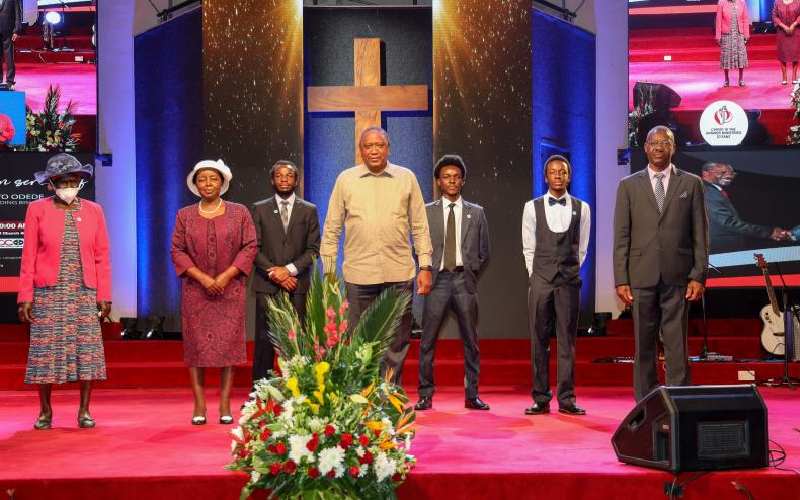×
The Standard e-Paper
Home To Bold Columnists

President Uhuru Kenyatta with newly consecrated Bishop Calisto Odede and his family at Christ Is The Answer Ministries (CITAM) Karen, Nairobi during the Consecration Service of the incoming Bishop who took over as the presiding Bishop.
The church has power. During the Meru leaders prayer breakfast, Bishop Calisto Odede walked up to the podium when Senator Mithika Linturi had begun selling a potentially divisive political narrative. The 90 seconds that followed became a highlight for Kenyans.